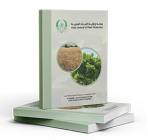Mahmoud, M. Abou Shaar and Q. El-Rahiye (SYRIA)
Pages 526-533
eSSN 2412-5407
pISSN 0255-982X
مجلة وقاية النبات العربية
Arab Journal of Plant Protection
A Regional Scientific Journal Published Four Times a Year by the Arab Society for Plant Protection

eSSN 2412-5407
pISSN 0255-982X

The Role of Compost in Biological Control of Tomato Crown and Root Rot Disease Caused by the Fungus Fusarium oxysporum f. sp. radicis-lycopersici Under Protected Cultivation Conditions
Abstract
Mahmoud, N., M. Abou Shaar and Q. El-Rahiye. 2024. The Role of Compost in Biological Control of Tomato Crown and Root Rot Disease Caused by the Fungus Fusarium oxysporum f. sp. radicis-lycopersici Under Protected Cultivation Conditions. Arab Journal of Plant Protection, 42(4): 526-533. https://doi.org/10.22268/AJPP-001276
A study was conducted to investigate the role of two compost types: citrus pruning residues compost (C) and olive pruning residues compost (O), in the biological control of tomato crown and root rot disease caused by the fungus Fusarium oxysporum. f. sp. radicis-lycopersici (FORL) under artificial infection conditions. Results obtained showed that both compost types differed in chemical and biological properties, which led 50 days after infection to a variation in their effect in influencing disease severity. The olive compost reduced the severity of the disease to 33.3% and was significantly superior to citrus compost 50.0%, compared to the untreated control, which reached 58.3%. Compost treatment was associated with an increase in the enzymatic activity of both peroxidase and polyphenol oxidase enzymes in tomato plants as compared to the untreated control. These results confirm the role of compost in inducing resistance to disease in tomato plants.
Keywords:
Compost, tomato crown and root rot disease, induced resistance, peroxidase, phenol oxidase.


 https://doi.org/10.22268/AJPP-001276
https://doi.org/10.22268/AJPP-001276  Download PDF
Download PDF